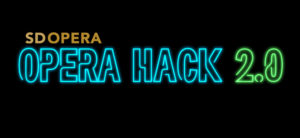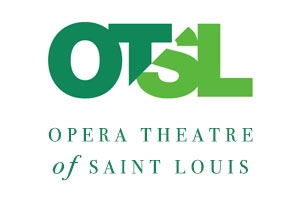
San Diego Opera Announces Winning Proposals for ‘Opera Hack 2.0’
By Chris RuelSan Diego Opera has chosen three proposals as the winners of the company’s “Opera Hack 2.0,” with each winning proposal awarded $5000.
This year’s winners are Lisa Szolovits, Ian Garrett, and Charles Coes’ “Real-Time Theater Engine: XR Show Control for Unity,” Kristen P Ahern and Amy Sutton’s “Performance Stock Exchange,” and Camilla Tassi and John Horzen’s “MusiCue.”
San Diego Opera’s month-long hack-a-thon event for music/theater and technology experts took place online from June 4 through July 2, 2021, and attracted participants from around the world.
The 26 proposals submitted comprised multidisciplinary participant teams who were mentored by an Advisory Panel whose members were Jennifer Dautermann, founding director of Classical:NEXT; Sarah Ellis, Director of Digital Development for the Royal Shakespeare Company; Ryan Hunt, Lead Software Engineer with the Walt Disney Company; Steve Lukas, Director of Product Management, XR Ecosystem at Qualcomm; and Vita Tzykun, award-winning set and costume designer of opera, theatre, and film, founding member of the GLMMR art collective, and Executive Creative Director at SENSEOS.
“At the conclusion of our second Opera Hack, I’m once again amazed by the creativity and ingenuity displayed by the many participants,” San Diego Opera General Director, David Bennett said in the company’s press statement. “We challenged them to come up with innovative ideas that explore how new technology can advance the production of opera, and they certainly delivered. I look forward to seeing the impact of these ideas on our industry in the future.”
Lisa Szolovits, Ian Garrett, and Charles Coes’ project, “Real-Time Theater Engine: XR Show Control for Unity,” is a plug-in for the Unity game engine, which allows for the creation of live or interactive Extended Reality (XR) performances. While the pandemic forced venues to shut down, XR performance technology was already were being developed, and early adopters of XR technology are creating new works specifically for the medium.
“The Performance Stock Exchange,” proposed by Kristen P Ahern and Amy Sutton, enables the strengthening of sharing networks through the creation of an online inventory tracking application. Users, such as shops, companies, and individuals, would create a self-managed profile with geolocation and list out what they have to share, preferably with pictures. The ease of browsing, and the geolocation feature help designers on the go by providing a view into what’s available in the area.
Camilla Tassi and John Horzen’s “MusiCue” proposal put forth an automated cue management system for stage managers and designers. MusiCue sends updates to the stage manager as cues are created, edited, shifted, and deleted. After the cues reach the stage manager, they can customize, annotate, and edit the information. “Master Cues” are sent back to the designers’ displays, which can be customized to only show what is most helpful to the tech process.
San Diego Opera’s “Hack 2.0” was made possible through an OPERA America Innovation Grant, along with support from the Ann and Gordon Getty Foundation.
Categories
News


